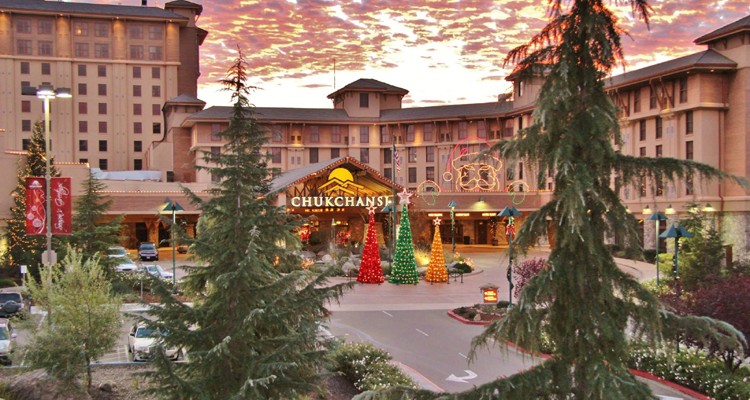On Monday the Picayune Rancheria of Chukchansi Indians announced a settlement had been reached with the National Indian Gaming Commission (NIGC) clearing a significant hurdle towards the reopening of its Chukchansi Gold Resort and Casino in Coarsegold, California.
The federal order is not being opposed by the state Attorney General’s office who had asked a federal judge for a preliminary injunction closing the casino. The casino will likely reopen in January and an announcement is expected in the coming days. While a number of logistical concerns still need to be addressed preparations for the reopening are already underway, and the majority of employees have been hired, according to officials.
A speedy reopening is wanted by the tribal council so that the tribe’s debts can begin to be repaid. After the tribe became delinquent on its hotel payments three years ago, its bondholders took on $250 million in debt. Two $12 million payments must be made by the tribe each year, but it has been able to do so since last September. Also arranged for the tribe earlier this year by bondholders was an additional $35 million for reopening costs.
The terms of the agreement with the federal government include a $19.8 million fine for the tribe’s failure to submit audits on time. However, in a statement issued by the gaming commission on Monday, as long as the tribe acts in accordance with the commission’s order the majority of those fines will be suspended. Per the order, three installments of $500,000 are to be paid to the federal government within 360 days. Three years after the tribe’s final financial compliance and safe operation of the facility the remaining $19.3 million will be suspended. However, if during that time “anything occurs to threaten the health and safety of the facility or its patrons and employees,” the orders that closed the casino almost a year-and-a-half ago will be reinstated, according to the Fresno Bee.
Approximately 1,000 employees, nearly 80 percent from Madera County, were without jobs when the casino was shut down in October 2014 by the state and federal government after a gaming office raid resulted in a dispute between tribal factions. Earlier this month the last of the 15 felony cases that resulted from the raid were settled.
Despite the gaming commission’s decision on Monday the same tribal infighting that derailed previous attempts to reopen the casino persist. Claiming to be the Chukchansi tribe’s original founders, a group of tribal members known as the “distributees” oppose the decision allowing the casino to reopen. The distributees also object to the Department of Interior’s Board of Indian Appeals election of the current council in 2014, and now consider council members opponents. Council chairman for the distributees, Luke Davis, opposed a November agreement between the elected council members and Madera County, claiming that the election was illegal. However, members of the tribal council say all of the guidelines set by federal and state officials were followed. On opposition is expected to be filed in U.S. District Court and a hearing sought in front of Judge Lawrence O’Neill. On two occasions members of the distributees’ two families, the Ramirezes and the Wyatts, have gone to court to contend the tribe’s membership numbers, only to have both cases dismissed by a federal judge in San Jose.
In addition to opposing the election, Wisconsin lawyer Gary Montana also opposes the proposed clear out of a business complex across from the casino, which members of the faction previously overseen by Tex McDonald have been occupying, and keeping weapons owned by tribal members 1,000 yards from the hotel and casino. Montana said if the issues were not addressed he would appeal the judge’s order. He has until Tuesday at 5 p.m. to file an opposition to the reopening order.
Meanwhile, the tribe’s former leader Vernon King who was one of the 15 individuals arrested on 29 felony counts for the October 9, 2014 office raid, has settled his case that stemmed from the dispute at the casino.


